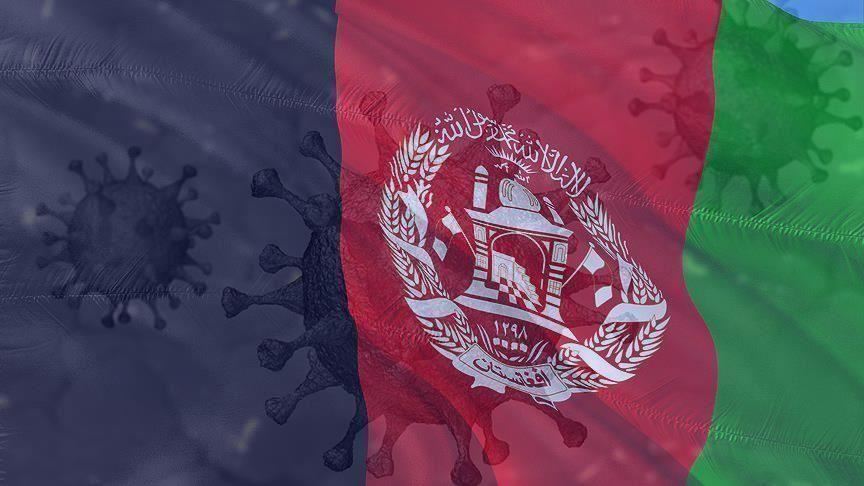Afghanistan: Private sector to rescue tumbling health system
All health facilities across country declared centers for coronavirus patients

KABUL, Afghanistan
After months of battling with the upward trajectory of the novel coronavirus, Afghanistan’s Health Ministry has finally acknowledged its limitations and allowed private laboratories and hospitals to join forces.
Outlining his strategy to deal with the pandemic, Ahmad Jawad Osmani, acting health minister, announced a “new national movement,” declaring all health facilities across the country as centers for COVID-19 patients.
In line with the new movement, no permission or license is needed form the centralized Afghan health system for any private laboratory or hospital to test or treat the COVID-19 patients.
"Any clinic or private hospital can acquire laboratory equipment and tools to diagnose COVID-19 and provide services to patients. It is worth noting that the World Health Organization has not approved the use of rapid testing to diagnose COVID-19, so that must be remembered,” Osmani said in a news conference last week.
This comes following troubling sights of crowds outside public hospitals waiting for tests and results in many parts of the country.
The move, seen by many health experts as “late but not least” has been inspired by the sheer lack of capacity and resources the Afghan public health sector faces in the wake of the pandemic that has tested the limits of many developed nations.
‘Nascent yet robust private sector’
Dr. Nader Khan, a Kabul-based private health practitioner, told Anadolu Agency “the nascent yet robust private sector” should have been allowed to join forces with the public sector months ago.
“The public hospitals are already overwhelmed with war victims, poor and malnourished patients from all over the country,” Khan said, insisting the government must play a vigilant role of quality and monetary regulator.
Afghanistan woke up to face the grim challenge posed by COVID-19 at least three months after the virus was first detected in China in December 2019.
The threat knocked on the country’s western border with Iran, when thousands of panicked Afghan refugees began returning with evident signs of the virus on a daily basis.
Since the outbreak of coronavirus in neighboring Iran, over 150,000 Afghans were deported or returned voluntarily to their war-ravaged country, the UN migration agency confirmed. On top of this, over 100,000 more stranded Afghans returned from neighboring Pakistan during the temporary opening of the main Torkham and Chaman crossing points last month.
In the initial days of the outbreak, western Herat province remained the hotbed for the novel virus. But now, the capital Kabul has taken over in terms of most number of cases.
Dr. Kabir Saifi, a former director of public health, said the actual numbers of patients with the virus could be much higher. “Our health system was not equipped and is still not equipped to handle the crisis of this scale, and the general public is still not serious about it,” he said.
Reaching limits
On June 13, Osmani publicly acknowledged that the public sector has reached the limit of its capacity to test coronavirus patients in the country.
Speaking at a gathering in Kabul, he said from now onwards, any patient with symptoms of COVID-19 would be considered as a positive case of coronavirus.
“At present, we have laboratories in eleven provinces and we plan to increase our services in all 34 provinces, but it will take time,” he said.
Pinning hope on the private sector’s contribution at these critical times, the ministry spokesman Akmal Samsor told Anadolu Agency the public sector had only 3,500 beds available in all of its health facilities.
“Now, it would increase significantly by the involvement of the private sector and establishment of COVID-19 isolation wards in other government-run hospitals,” he said.
Responding to a question about quality and monetary regulation, he said through regular monitoring of the private sector hospital, the Health Ministry is trying to ensure quality and safety of the services.
“Through continuous engagement with the private sector, the Ministry of Public Health is influencing the private sector to act responsibly. We are also raising public awareness about the government accredited services of the private sector,” he added.
The Health Ministry, with all its limitations, has also activated a program of contact tracing of the infected patients with the help of Volunteer Contact Tracers and Community Health Workers.
Anadolu Agency website contains only a portion of the news stories offered to subscribers in the AA News Broadcasting System (HAS), and in summarized form. Please contact us for subscription options.







